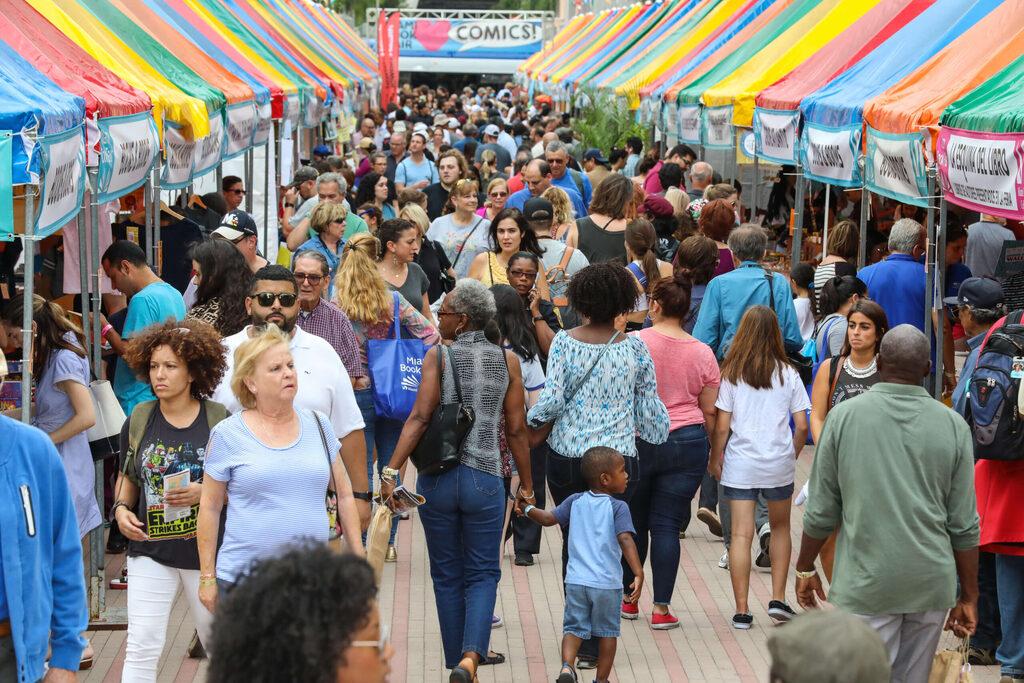E. J. Koh was 15 when her mother returned to South Korea and left her behind in California. In her memoir The Magical Language of Others, she grapples with forgiveness, reconciliation, and legacy as she reads her mother’s letters seeking absolution and love. Prize-winning poet Marcelo Hernandez Castillo’s Children of the Land relays his experiences growing up undocumented in the United States, and his attempt as a young man to build a future in a nation that denied his existence. They’re joined by Rebecca Friedman, director of the Wolfsonian Public Humanities Lab at FIU and author of Modernity, Domesticity and Temporality in Modern Russia: Time at Home.
In Conversation: Another Country, Not Their Own

In Conversation: Another Country, Not Their Own
Author:
{authors}
Rebecca Friedman
Rebecca Friedman is Co-Director, Miami-Florida European Union Center of Excellence Director, European Studies Program, Florida International University. Her research focuses on the history and culture of modern Russia. She’s the author of Masculinity, Autocracy and the Russian University, 1804-1863. She also edited (with Barbara Clements and Dan Healy) the collection Russian Masculinities in History and Culture, which is the first volume in English to focus on the growing field of Russian masculinity studies. She has also written about Russian childhood and the gendering of the Cadet Corps.
Marcelo Hernandez Castillo
Marcelo Hernandez Castillo is the author of Cenzontle. His work has appeared or is featured in The New York Times, The Paris Review, People Magazine, and PBS Newshour, among others. When Marcelo Hernandez Castillo was five years old and his family was preparing to cross the border between Mexico and the United States, he suffered temporary, stress-induced blindness. Castillo regained his vision, but quickly understood that he had to become invisible. Thus began a new life of hiding in plain sight and of paying extraordinarily careful attention at all times for fear of being truly seen. Before Hernandez Castillo was one of the most celebrated poets of a generation, he was a boy who perfected his English in the hopes that he might never seem extraordinary. In Children of the Land (Harper Perennial) Hernandez Castillo recounts his and his family’s encounters with a system that treats them as criminals for seeking safe, ordinary lives. It distills the trauma of displacement, illuminates the human lives behind the headlines and serves as a stunning meditation on what it means to be a man and a citizen. Author Sandra Cisneros praised Children of the Land as a “moving memoir [..] the document of a life without documents, of belonging to two countries yet belonging to neither. Hernandez Castillo has created his own papers fashioned from memory and poetry. His motherland is la madre tierra, his life a history lesson for our times.”
E. J. Koh
E. J. Koh is the author of poetry collection A Lesser Love. Her poems, translations, and stories have appeared in Boston Review, Los Angeles Review of Books, World Literature Today, among others. She is the recipient of The MacDowell Colony and Kundiman fellowships, 2017 ALTA Emerging Translator Mentorship, and is Runner-Up for the 2018 Prairie Schooner Summer Nonfiction Prize. In her memoir The Magical Language of Others (TinHouse Books), E.J. Koh tells a powerful and aching love story in letters, from mother to daughter. After living in America for over a decade, Eun Ji Koh’s parents return to South Korea for work, leaving her, then fifteen, and her brother behind in California. Overnight, Eun Ji finds herself abandoned and adrift in a world made strange by her mother’s absence. Her mother writes letters, in Korean, over the years seeking forgiveness and love—letters Eun Ji cannot fully understand until she finds them years later hidden in a box. As she translates them, she looks to family history, to poetry, and her own lived experience to answer questions common to all of us. Where do the stories of our mothers and grandmothers end and ours begin? How do we find words to articulate the profound ways that distance can shape love? Eun Ji Koh fearlessly grapples with forgiveness, reconciliation, legacy, and intergenerational trauma, arriving at insights that are essential reading for anyone who has ever had to balance love, longing, heartbreak, and joy. The San Francisco Chronicle called this book “a
